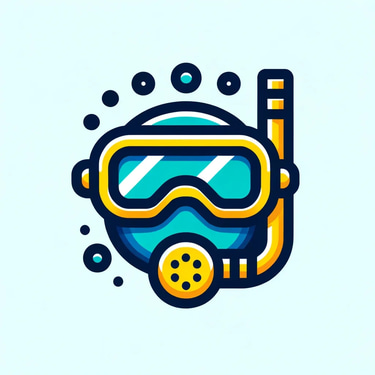The Importance of Neutral Buoyancy for Beginners
Learn why neutral buoyancy is essential for beginner divers and discover practical tips to achieve perfect buoyancy control underwater.
IF YOU ARE NEW TO DIVING...START YOUR JOURNEY HERE


The Importance of Neutral Buoyancy for Beginners
Neutral buoyancy is one of the most important skills every beginner diver should master early on. Simply put, it’s the ability to hover effortlessly in the water without sinking or floating up. Getting this balance right not only makes diving more enjoyable but also safer for both you and the fragile underwater environment.
When you achieve neutral buoyancy, you conserve energy and air because you don’t have to constantly fight to stay at a certain depth. This means longer, more comfortable dives and less strain on your body. For beginners, it can also reduce stress and boost confidence as you gain more control over your movements underwater.
Learning neutral buoyancy starts with proper weighting. Too much weight makes it hard to float up, while too little causes you to struggle sinking. Your dive instructor will help you find the right amount during your initial training. It’s also crucial to practice slow, controlled breathing, as your lung volume directly affects your buoyancy — inhaling makes you float up slightly, exhaling causes you to sink.
Good buoyancy control also protects the environment. When divers maintain neutral buoyancy, they avoid accidentally touching or damaging coral reefs and disturbing marine life. This helps preserve the underwater world for future divers and the ecosystems that depend on it.
Many dive computers and buoyancy control devices (BCDs) assist in managing buoyancy, but the skill to adjust and feel it manually is essential. Practice makes perfect, so spend time honing your buoyancy during training and early dives.
Remember, mastering neutral buoyancy isn’t about being perfectly still; it’s about being in control and moving smoothly with minimal effort. As you gain experience, this skill will become second nature, improving your overall dive experience.
Happy and safe diving,
The ScubaBlast Team
Divers Alert Network. (2022). Buoyancy control: The key to better diving. Retrieved from https://dan.org/health-medicine/health-resources/dive-safety/buoyancy-control
PADI. (n.d.). Why buoyancy is important for new divers. Retrieved July 27, 2025, from https://www.padi.com/articles/why-buoyancy-important-new-divers
Scuba Diving. (2021). Tips for mastering neutral buoyancy. Retrieved from https://www.scubadiving.com/training/tips-for-mastering-neutral-buoyancy
